EMPIRE RECORDS (1995)
24 hours in the lives of the young employees of a record store...
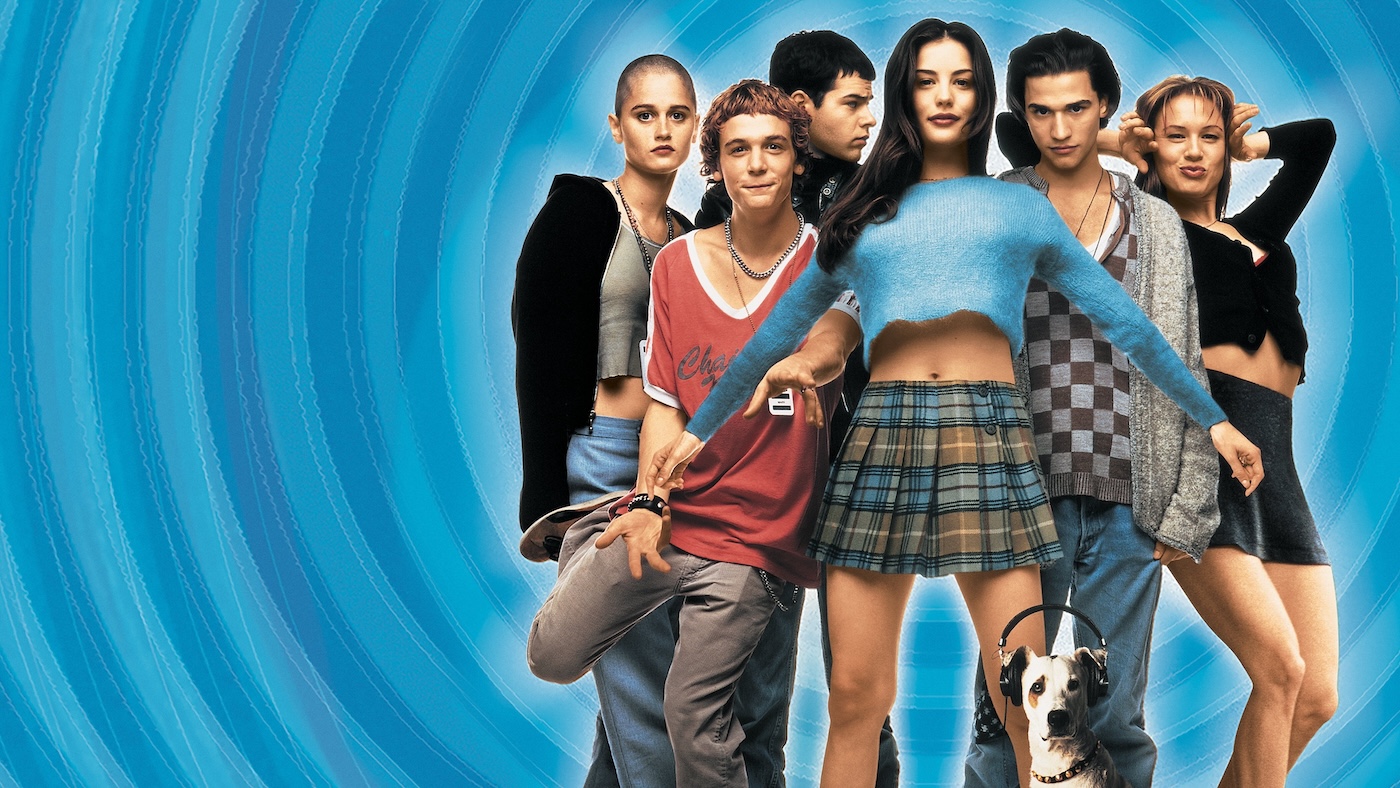
24 hours in the lives of the young employees of a record store...

The 1990s were marked by a contradictory combination of economic optimism and cultural disillusionment. The booming economy and the rising popularity of the internet generated an optimistic sense of upward momentum, but youth culture remained nihilistic of large corporations and gravitated toward an ethos of anti-commercialism. Music was the driving force of the decade’s counterculture movement. The rise of Grunge, Hip-Hop, and Alternative Rock rejected the glossy excesses of the previous decade. As bands including Nirvana, A Tribe Called Quest, and Nine Inch Nails reshaped the cultural landscape, cinema also mirrored the eclectic energy of the music scene. Independent filmmakers such as Richard Linklater (Slacker), Cameron Crowe (Singles), and Kevin Smith (Clerks) translated countercultural sensibilities onto celluloid.
They captured Generation X’s disillusionment by championing dialogue over large-budget spectacle and portrayed protagonists rejecting corporate conformity while foregrounding the anxieties of an uncertain future. Yet, not every endeavour captured the zeitgeist successfully, demonstrating just how easily the countercultural energy could be manufactured by Hollywood. Ben Stiller’s Reality Bites (1995) was a calculated and inauthentic attempt to appeal to youth disillusionment, while Michael Lehmann’s Airheads (1994) diluted its genuine cultural critique by leaning heavily into slapstick and caricature. However, in this environment emerged Allan Moyle’s (Pump Up The Volume) surprisingly earnest and resonant Empire Records. Long dismissed as a noisy and unfocused slice of ’90s pop culture, it’s since been re-evaluated as a sincere meditation on youth, community, and the impending corporatisation of individuality.
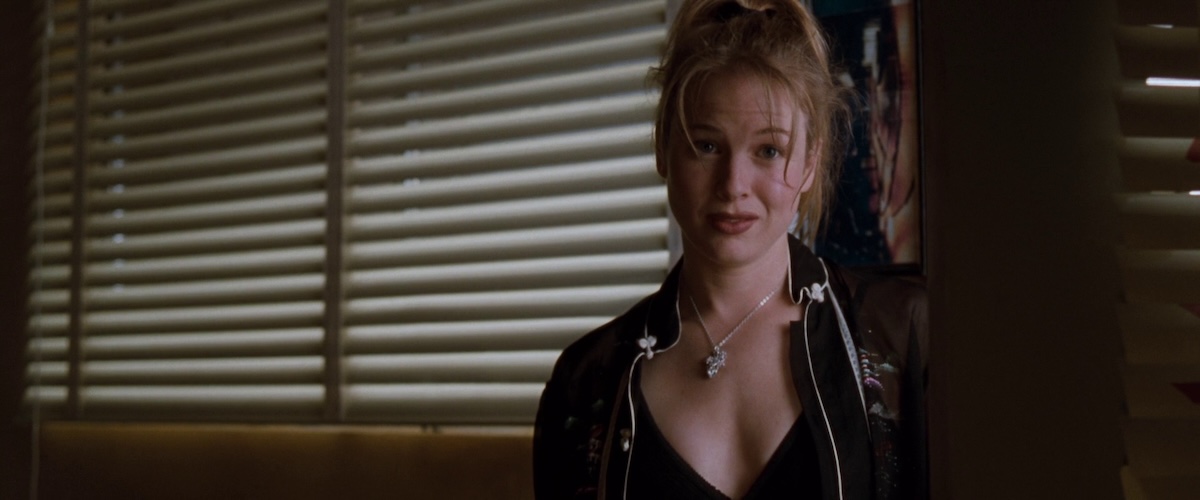
Unfolding over the course of a single turbulent day, Empire Records is an independent record store that serves as both workplace and sanctuary for a cohort of young employees. The weary but compassionate manager Joe (AnthonyLaPaglia) is quietly attempting to preserve the shop’s autonomy from becoming a conglomerate record store chain. However, his plans begin to unravel when Lucas (Rory Cochrane) gambles away the store’s savings in a misguided attempt to preserve its independence. Mark (Ethan Embry) and AJ (Johnny Whitworth) immediately realise the ramifications of Lucas’ grievous mistake but withhold the information from Joe while he becomes distracted by a scheduled publicity stunt. The fading teen icon, Rex Manning (Maxwell Caulfield), is due to promote his latest album at the store and sign autographs for his increasingly aging fan base. As the mismatched staff begin to grapple with Lucas’ reckless actions, they find themselves forced to confront the uncertainty of their collective future alongside their own personal insecurities, ambitions, and desires.
The ensemble represents a snapshot of the decade’s rising talent and an assortment of charismatic young actors whose subsequent careers would extend far beyond this cult curio. In one of her earliest roles, Liv Tyler functions as the narrative anchor as the idealised overachiever, Corey. After her ethereal debut in Silent Fall (1994) and gaining early recognition opposite Alicia Silverstone in Aerosmith’s iconic “Crazy” music video, she transcends her rock-royalty lineage by asserting herself as a compelling actor rather than a mere byproduct of pedigree. Her portrayal of Corey embodies the universal adolescent struggle of being caught between external expectations and her own internal insecurities. Tyler grounds her character’s journey with a quiet sincerity and gentle fragility that balances the ensemble’s more anarchic and rebellious energy.
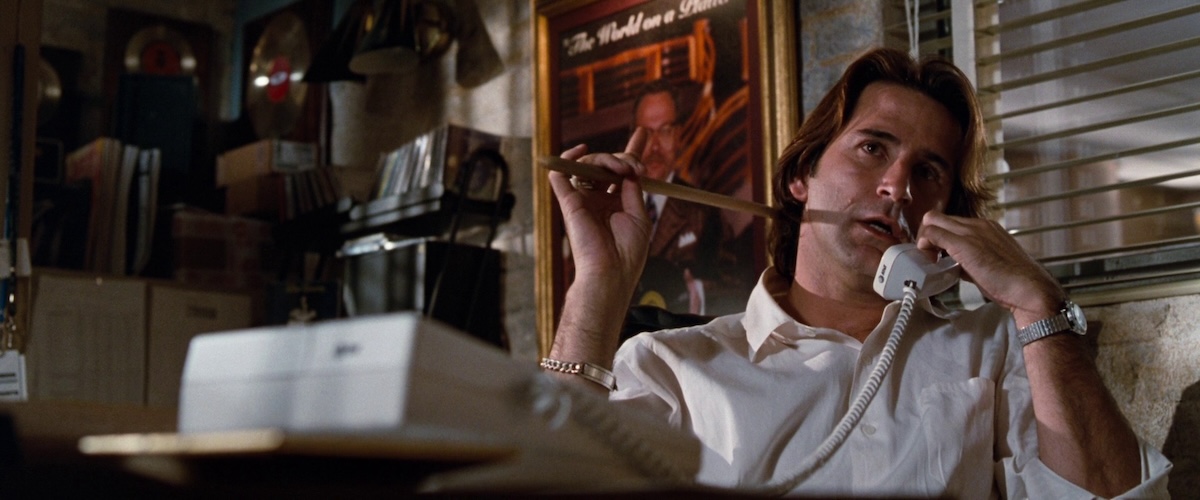
Similarly, Renée Zellweger had only just begun to establish herself with minor appearances in independent flicks and a brief role in Reality Bites. The young actress was mostly recognised for her appearance in the cult crime-thriller Love and a .45 (1994), but she was far from a household name. However, Zellweger commands the screen as Gina with an ease that belies her newcomer status. She infuses her character with an unapologetic sexuality and vivacious energy, balancing playful confidence with moments of vulnerability. Her performance radiates a kind of chaotic charm that would soon propel her to mainstream recognition in Jerry Maguire (1996). Equally indelible is Rory Cochrane’s (Dazed and Confused) turn as the philosophical slacker, Lucas. Speaking in cryptic aphorisms while delightfully confounding others, the actor imbues the character with a mischievous charisma that is both ridiculous and oddly profound.
As demonstrated with his earlier cult success Pump Up The Volume (1990), Empire Records exemplifies Alan Moyle’s talent for capturing teenage alienation. While the narrative remains largely episodic and unravels like a cinematic mixtape, each storyline centring on different employees reflects the existential crises and absurdities of ’90s adolescence. Lucas embodies the anti-authoritarian dreamer willing to risk everything to preserve authenticity. Debra (Robin Tunney) enacts the self-destructive despair simmering beneath suburban rebellion. Corey’s seemingly innocuous persona fractures under the weight of perfectionism to reveal addiction as a symptom of societal pressures.
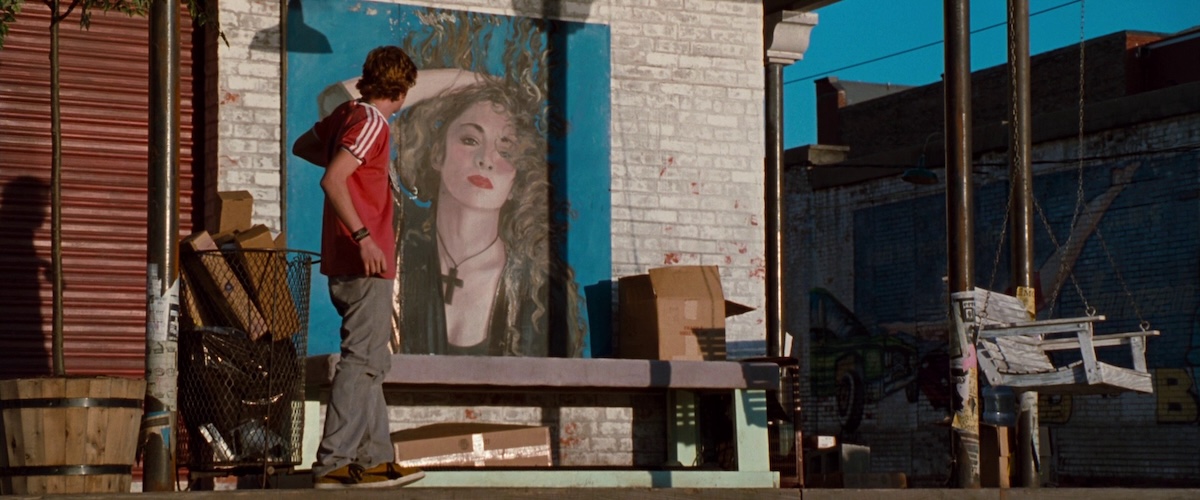
Ultimately, these digressions form a cohesive narrative that resembles a somewhat updated rendition of The Breakfast Club (1995) for a contemporary audience. However, unlike John Hughes’ timeless classic, Moyle doesn’t attempt to intellectualise youth alienation. Rather than experiencing transformative moral lessons or changes in worldview, Empire Records captures the awkward and contradictory spirit of disaffected youth navigating the liminal space between adolescence and adulthood. This is when the only solace found during these difficult moments can be discovered through forming unlikely friendships, creating a thoughtfully selected mixtape, and challenging authority.
That’s not to say Carol Heikkinen’s (The Thing They Called Love) screenplay is not without some blemishes. The narrative oscillates erratically between lighthearted farce and overwrought melodrama without committing to either with conviction. At one moment, the audience is treated to slapstick encounters with inept shoplifters or the camp absurdity of Rex Manning. Then they are unceremoniously thrust into an impromptu mock memorial service, where each character reveals their deepest insecurities. Debra emerges as the most intriguingly layered figure, but her suicidal despair lacks any serious exploration that such subject matter demands. The climactic crescendo fares no better either, functioning as a perfunctory resolution to several narrative threads that were never meaningfully developed. Thankfully, these minor missteps can be easily overlooked due to the unselfconsciously optimistic and principled spirit that courses through the 90-minute run time.
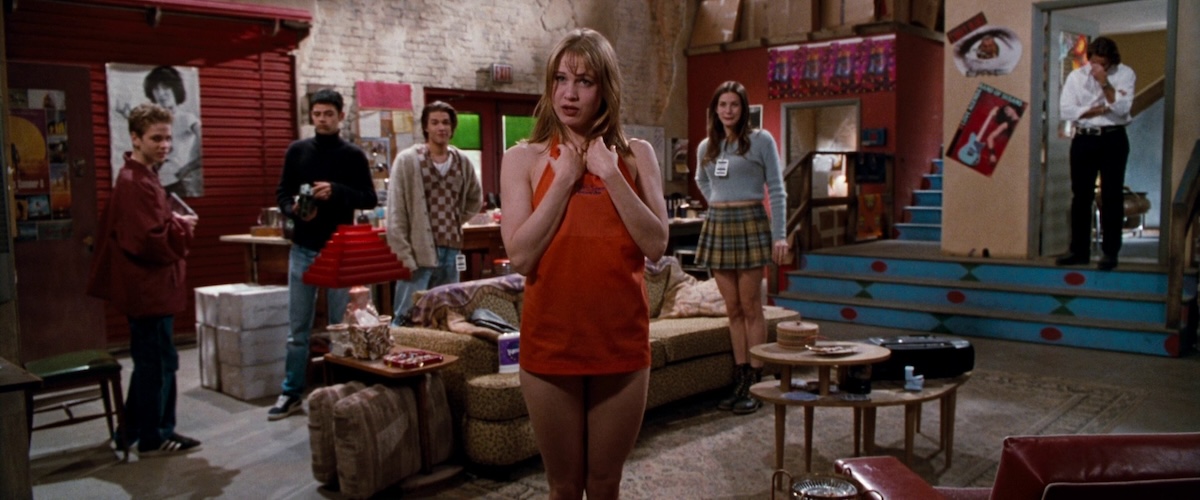
The resounding reason why Empire Records continues to appeal to audiences three decades after its release rests in its portrayal of the fragile communal space that capitalistic conformity would eventually eradicate. The independent record store was once more than a site of commerce; it was a sanctuary where music enthusiasts, misfits, and eccentrics would gather to refine their identities in a world of creeping commodification. Within those four walls, the act of flipping through vinyl sleeves, recommending an album to a friend, or arguing over the merits of a particular band became rituals of belonging. They functioned as cultural hubs where the disaffected youth rehearsed rebellion against the deadening conformity of suburban life by consuming art in the most personal ways. In today’s sterile landscape of digital streaming, tactile intimacy and serendipitous discovery have been replaced by algorithmic curation and playlist homogenisation. However, Empire Records captures a profound cultural moment when a generation was in communion with music and with one another. It remains a love letter for the outcasts, the dreamers, and the music obsessives who lingered in record stores and believed that music could change the world.
Empire Records desperately wanted to be the generational anthem for the mid-’90s alternative scene, but it was both a commercial and critical disaster. Unfortunately, it collapsed at the box office during its initial release, grossing a meagre $300,000 against its $10M production budget. This catastrophe was undoubtedly exacerbated by Warner Bros.’ heavy-handed interference, removing almost 40 minutes of footage and then unceremoniously releasing it into cinemas with barely any marketing campaign.
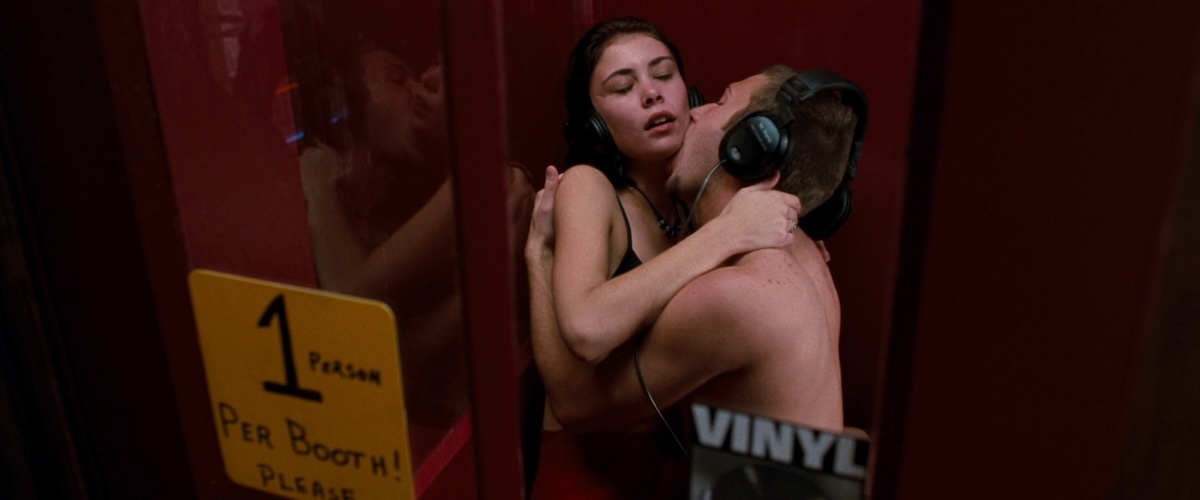
Beyond the calamitous distribution, the film also suffered the existential problem of becoming stranded in a generational purgatory. It arrived too late to resonate with the early-’90s grunge culture, epitomised by flannel shirts and dramas including Cameron Crowe’s Singles (1992) and Richard Linklater’s Before Sunrise (1995). However, it was too early to capture the amorphous mayhem of the late-’90s, underscored by the popularity of cargo pants and comedies such as Gil Junger’s 10 Things I Hate About You (1999) and Paul Weitz’s American Pie (1999). It was caught in a pop-culture blind spot between two differing generations, unable to resonate with either.
Regardless, with the irreverent rallying cry of “Damn the man, save the Empire!” still echoing nearly three decades later, Empire Records has since been embraced by audiences and is now considered a cult classic. While operating as an authentic time capsule when 1990s alt-rock swamped contemporary airwaves, it delivers an intimate portrayal of the anxieties and aspirations of a generation searching for meaning in a world where creeping commodification threatened individuality. It acknowledges the complexities that arose during that era, yet finds levity in navigating such vulnerable experiences with its chaotic energy and loose structure.
USA | 1995 | 90 MINUTES | 2.39:1 • 2:35:1 | COLOUR | ENGLISH

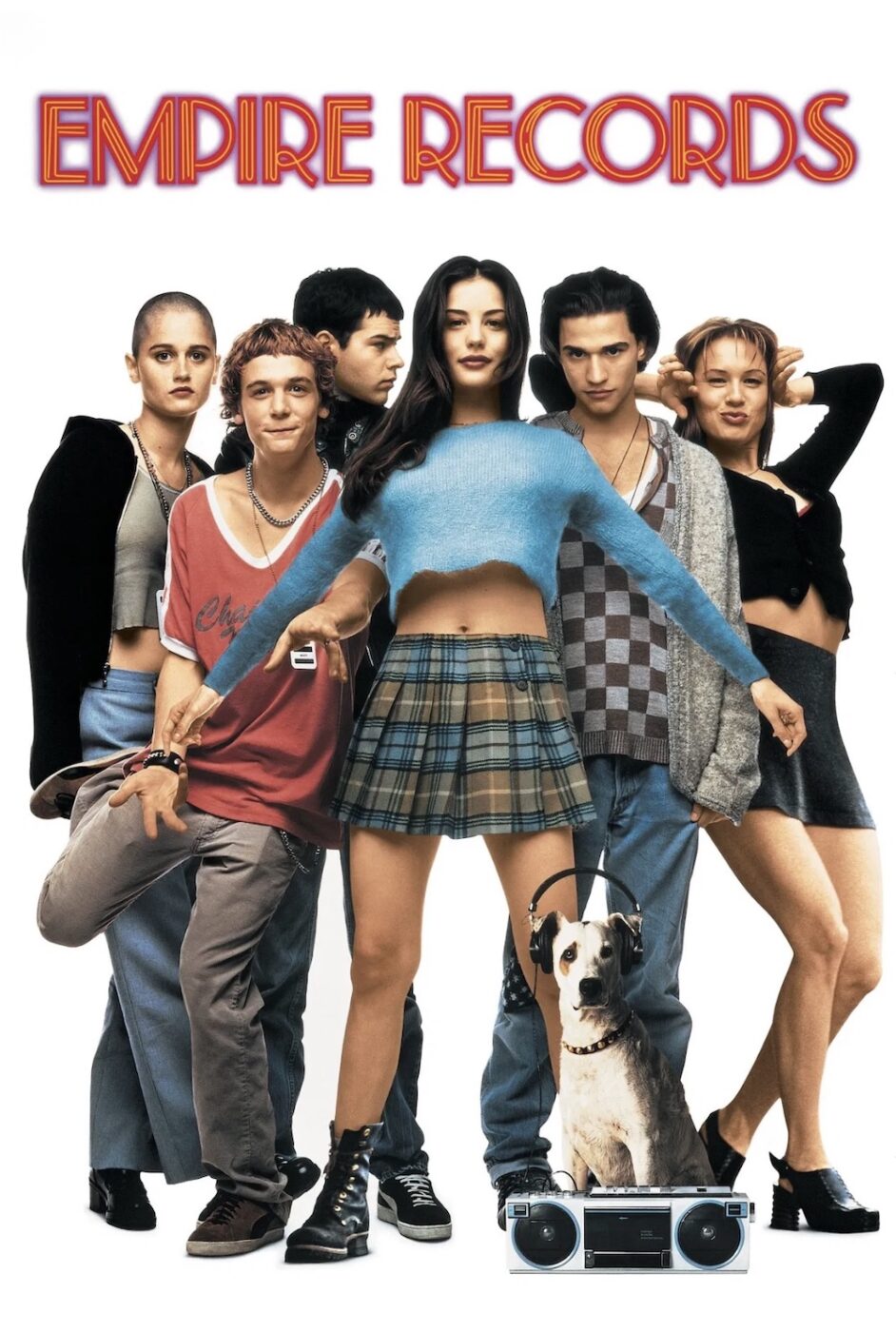
director: Allan Moyle.
writer: Carol Heikkinen.
starring: Anthony LaPaglia, Liv Tyler, Renée Zellweger, Rory Cochrane, Debi Mazar, Johnny Whitworth, Robin Tunney & Maxwell Caulfield.
